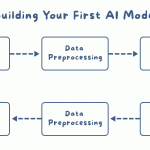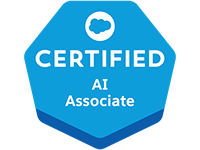In the rapidly evolving landscape of artificial intelligence (AI), the need for ethical considerations is more critical than ever. As an IT service company we are committed to delivering cutting-edge solutions, it is imperative to prioritize the development of ethical AI systems. This article serves as a guide for creating responsible AI by addressing biases, ensuring user privacy, and fostering transparency.
Detecting and Mitigating Biases
- The foundation of ethical AI lies in fair decision-making. Detecting and mitigating biases in AI systems is paramount to ensuring that algorithms treat all individuals fairly. By implementing rigorous testing and validation processes, you can identify and rectify biases, promoting unbiased outcomes and inclusive decision-making.
Ensuring User Privacy
- User privacy is a non-negotiable aspect of ethical AI development. Techniques such as informed consent and data protection must be incorporated to safeguard sensitive information. Prioritize the implementation of robust security measures to protect against unauthorized access and breaches, preserving the integrity and confidentiality of user data.
Fostering Transparency
- Building trust with users is contingent on providing clear explanations of AI models and processes. Transparency in design and functionality enhances user understanding, laying the groundwork for a more trusting relationship between users and AI systems.
Inclusive and Accessible Design
- Strive for inclusivity by designing AI systems that are accessible to all users. Prioritizing equal participation ensures that technology benefits a diverse range of individuals, contributing to a more equitable and just society.
Accountability and Human Oversight
- Establishing accountability frameworks and ensuring human oversight in critical decision-making processes are pivotal steps. This addresses challenges in attributing responsibility and ensures that ethical considerations remain at the forefront of AI development.
Collaboration for Diversity
- Embrace collaboration among diverse teams as a cornerstone of ethical AI development. A comprehensive approach involves drawing on varied perspectives to identify and address potential ethical concerns throughout the development lifecycle.
Ongoing Monitoring and Auditing
- The landscape of AI is dynamic, and ethical concerns may evolve. Implement ongoing monitoring and auditing processes to proactively identify and address emerging ethical issues. This commitment to vigilance ensures that your AI systems remain aligned with ethical principles.
Implementation Guide
In the practical realm of AI development, implementing ethical principles requires a strategic approach:
Understanding Ethical Principles
- Develop a deep understanding of ethical principles and their implications for AI development. This foundational knowledge will guide decision-making at every stage of the process.
Clear Guidelines
- Establish clear guidelines for ethical AI development within your organization. These guidelines should be comprehensive and adaptable to accommodate the evolving nature of technology and ethical considerations.
Cross-Functional Teams
- Assemble cross-functional teams to bring diverse expertise to the table. A multidisciplinary approach ensures a well-rounded perspective on ethical challenges and solutions.
Early Project Planning
- Integrate ethical considerations into early project planning. This proactive approach sets the tone for responsible development and helps identify potential ethical issues before they become entrenched in the system.
Unbiased Training Data
- Ensure training data is unbiased and representative. The quality of data directly influences the fairness of AI outcomes, making unbiased and diverse datasets essential.
Fairness and Bias Mitigation
- Implement fairness and bias mitigation techniques during the development process. This ongoing commitment to fairness helps rectify biases as they arise and ensures equitable AI outcomes.
Transparent Systems
- Design transparent AI systems that provide users with insight into how decisions are made. Transparency builds user trust and helps maintain ethical standards.
Prioritize Privacy
- Prioritize user privacy by incorporating robust security measures and obtaining informed consent. Protecting user data is integral to ethical AI development.
Human Oversight
- Establish mechanisms for human oversight in critical decision-making processes. Human judgment adds an extra layer of accountability and ensures ethical considerations are not overlooked.
Education and Stakeholder Engagement
- Maintain clear documentation of ethical guidelines and commitments. Commit to iterative improvement based on feedback and emerging ethical considerations, ensuring that your AI systems evolve responsibly over time.
In conclusion, the responsible development of AI requires a multifaceted approach that addresses biases, ensures privacy, and fosters transparency. By following these ethical guidelines and incorporating them into your development processes, you contribute to the creation of AI systems that are not only technologically advanced but also aligned with ethical principles. As an IT service company, embracing these principles positions you at the forefront of ethical AI development, building trust with users and contributing to a more equitable and inclusive technological future.


















